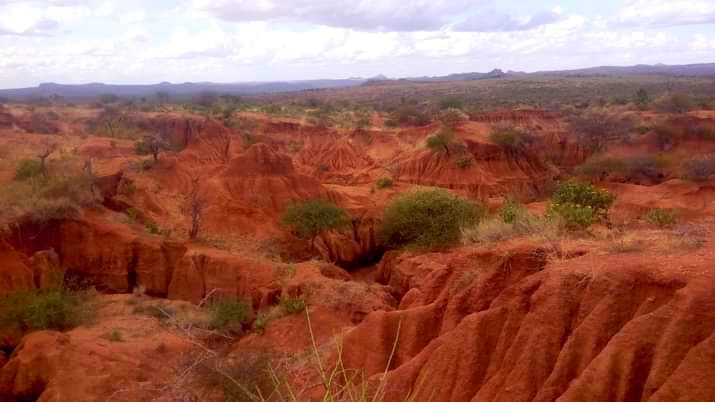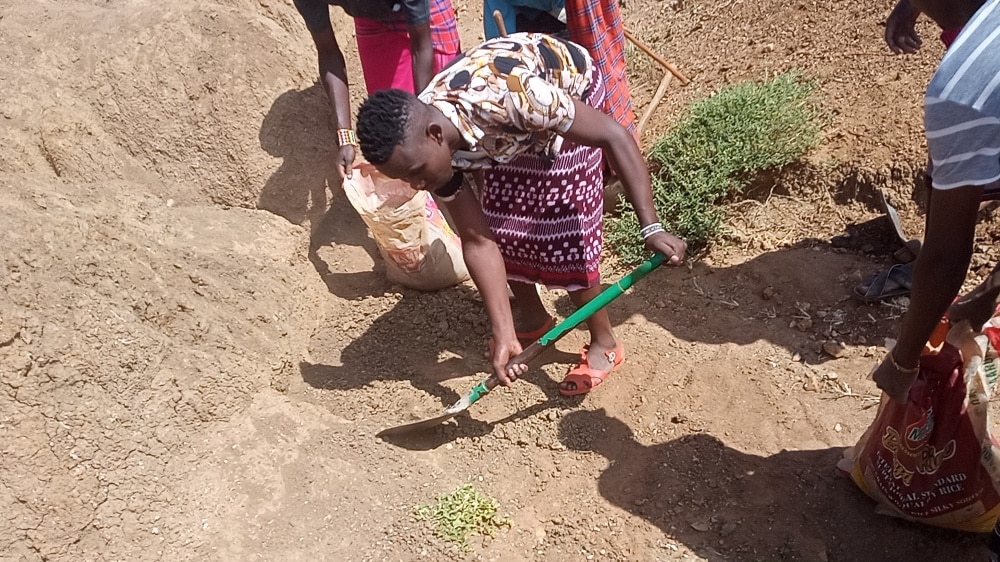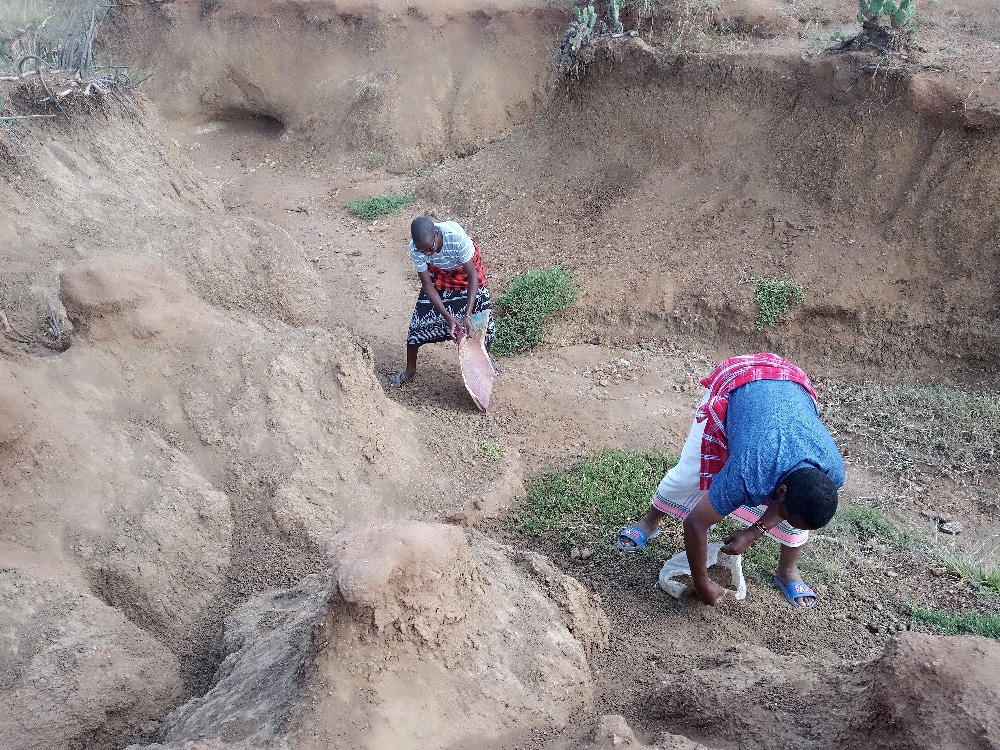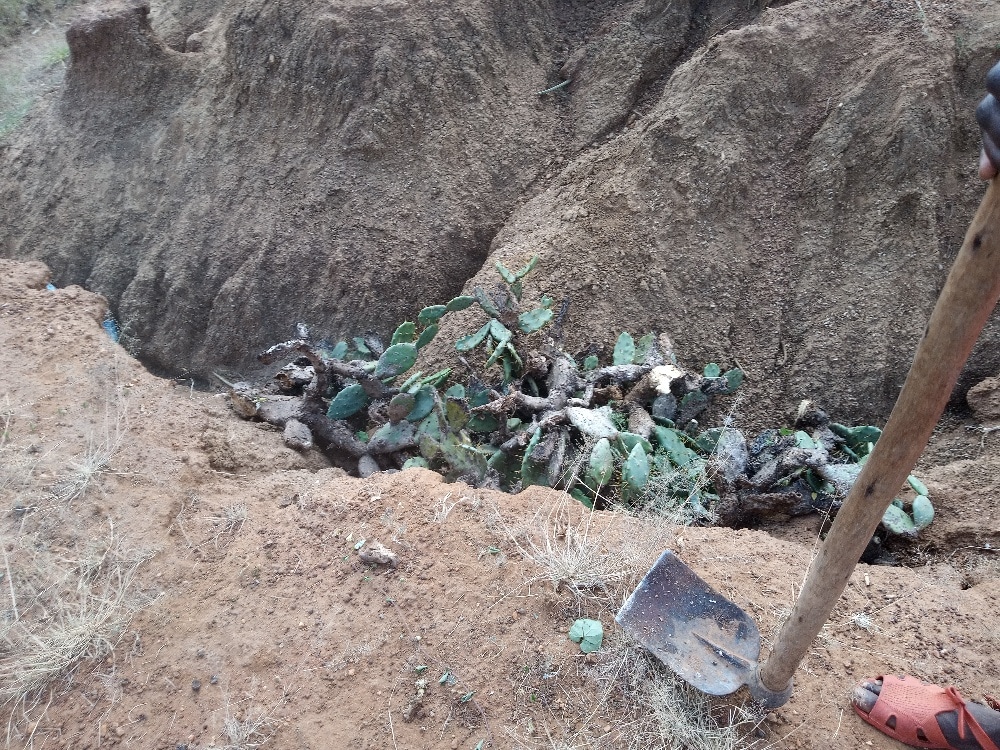In the remote and arid regions of the Nareto Conservancy, the land is no stranger to the devastating effects of erosion. Over the years, as drought and desertification have tightened their grip on the area, a network of deep, winding gullies has carved its way across the once-lush landscape, carrying away precious topsoil and leaving behind a scarred and barren terrain.

For the residents of the Nareto Conservancy, these gullies have become a formidable foe, threatening the very foundations of their livelihoods and their way of life. But rather than surrender to the relentless march of erosion, the community has banded together to devise an innovative and ambitious plan to combat this pressing challenge.
“Gully erosion is one of the biggest threats we face,” says Olenaikodo, a local farmer and founding member of the Conservancy. “It’s not just stripping away the soil, but it’s also creating dangerous ravines that make it difficult for us to move around and access our land.”
Recognizing the urgency of the situation, the Nareto Conservancy has launched a multi-pronged initiative to tackle the gully erosion head-on. At the heart of their efforts lies a remarkable program of community-led gully rehabilitation, with residents coming together to manually fill, reshape, and stabilize the eroded channels.
“The first step is to identify the most critical gullies, the ones that pose the greatest risk to our land and our livelihoods,” explains Edwin, a young enthusiast and Conservancy’s project coordinator. “Once we’ve pinpointed the problem areas, we mobilize the entire community to get to work.”

Armed with shovels, picks, and unwavering determination, the residents of the Nareto Conservancy descend upon the gullies, working tirelessly to fill the deep channels with soil, rocks, and organic matter. The process is arduous and time-consuming, but the sense of purpose and camaraderie that permeates the air is palpable.
“It’s hard work, no doubt about it,” says Ole Putunoi, a resident who has been actively involved in the gully rehabilitation efforts. “But when you see the difference it makes, when you see the land start to heal and the vegetation begin to reclaim its rightful place, it makes it all worth it.”

Alongside the physical labor of gully filling, the Conservancy has also implemented a comprehensive program of gully stabilization, using a variety of innovative techniques to prevent the erosion from returning. This includes the strategic planting of drought-resistant grasses and trees, the construction of small check dams, and the introduction of contour bunds to slow the flow of water and trap sediment.
“The key is to not just fill the gullies, but to ensure that they don’t reopen,” says Patrick. “That’s why the stabilization work is so crucial – it’s about creating a long-term solution that will protect the land for generations to come.”
The results of the Nareto Conservancy’s efforts have been nothing short of remarkable. Once-daunting gullies have been transformed into lush, fertile swaths of land, with the community’s hard work and dedication bearing fruit in the form of increased vegetation cover, improved soil quality, and a renewed sense of hope for the future.
“We’ve seen a dramatic reduction in the rate of erosion, and the land is starting to heal and recover,” says Francis. “It’s a slow and painstaking process, but the progress we’ve made is a testament to the power of community-driven action.”
The Nareto Conservancy’s success has not gone unnoticed, with the initiative garnering praise and support from local authorities, environmental organizations, and even international partners. But for the residents of the Conservancy, the true measure of their accomplishment lies in the tangible improvements to their daily lives and the renewed sense of security that comes with a land that is once again thriving.

“Before, we were constantly worried about the gullies, about the risk of losing our crops, our livestock, even our homes, Now, we can breathe a little easier, knowing that we’re taking control of our destiny and shaping a future that is more sustainable and secure.” said Olelegei, a senior director in the conservancy.
As the Nareto Conservancy continues to expand its gully rehabilitation efforts, the members remain steadfast in their commitment to combating erosion and restoring the delicate balance of their land. Their inspiring story serves as a testament to the power of community-driven action, the transformative potential of collective effort, and the unwavering belief that even the most daunting challenges can be overcome.




